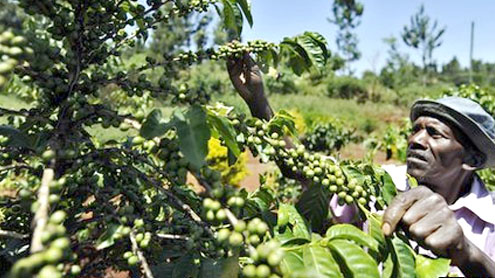 Few companies are able to resist the lure of the stockmarket.The opportunity to cash in or raise funds for expansion is, in most cases, overwhelmingly seductive.But for some business owners, the benefits of keeping full control outweigh the lure of a quick buck.For a start, you own the company, not a group of faceless profit-hungry shareholders. You answer to no-one but your conscience.
Few companies are able to resist the lure of the stockmarket.The opportunity to cash in or raise funds for expansion is, in most cases, overwhelmingly seductive.But for some business owners, the benefits of keeping full control outweigh the lure of a quick buck.For a start, you own the company, not a group of faceless profit-hungry shareholders. You answer to no-one but your conscience.
This means you don’t have to dilute profits by paying out dividends.Nor is the value of your company tied to the whimsical sentiment of investors, including those that have no stake in it.And perhaps most importantly, your balance sheet won’t be dissected by the prying eyes of countless analysts whose criteria for deciding whether your company is any good may depend on little more than hitting quarterly sales and profit forecasts.This all means you can have a more long-term strategy, free from the need to placate others.For those more cynically minded, it also means your actions are subject to less scrutiny, allowing you to do things your publicly-listed rivals may not get away with.Some of these private companies have been spectacularly successful. You may not have heard of them, but they are big. Really big.
Cargill
Cargill started life as a grain storage facility in the US state of Iowa in the 1860s and has grown to become America’s biggest private firm.It employs more than 130,000 people across 66 countries and last year pulled in revenues of $108bn – more than US car giant General Motors.Today, Cargill is involved in all manner of businesses, but its staple remains agriculture.You name it, Cargill trades it – grains, sugar and meat to cotton, fuel and salad dressings.Popular myth suggests one in three ingredients found in US consumers’ cupboards has passed through Cargill’s hands. True or not, one thing is certain: much of the food we all eat has been bought and sold by this US leviathan.Questions have inevitably been raised about the extent of the company’s power and influence, particularly so given recent rises in global food prices.There is also the emotive issue of deforestation, particularly with respect to soya and palm oil.Only following lobbying of key customers like McDonald’s, for example, did Cargill sign up to a moratorium on Amazonian soya.A spokesperson for Cargill told the BBC the company has “always had a commitment to sustainability. It’s better to focus on what has been accomplished, and the [soya] moratorium is a good thing”.But on this issue and many others, Cargill continually “drags its feet and is difficult to engage with,” according to John Sauven, director of Greenpeace UK.
Bechtel
US construction giant Bechtel has been involved in some of the world’s best-known and biggest engineering projects.Airports and seaports, power plants, pipelines, tunnels, roads and rail systems, mines and more – you name it, Bechtel has built it.One of its most impressive is Hong Kong International Airport, a $20bn development that involved reclaiming 10 square kilometres of sea to build two runways, two terminal buildings, a high-speed rail system, two tunnels, two bridges and a six-lane motorway.The company has also overseen the construction of the Hoover Dam in the US, the Channel Tunnel linking Britain and France and the Athens Metro.In the UK, Bechtel managed the modernisation of the West Coast Main Line and is currently overseeing the 21km tunnel under London that will form the centrepiece of Crossrail, the new commuter rail line connecting the east and west of the capital.The company also says it has built or designed more than half the nuclear power plants operating in the US.Bechtel was also involved in a number of projects in the reconstruction of Iraq, although questions were raised at the time over the company’s alleged close ties with the Bush administration and the awarding of contracts.Despite these accusations, when it comes to so-called construction megaprojects, few companies can compete with Bechtel, which posted revenues of $31bn in 2009, generated by a workforce of more than 50,000 working on projects in almost 50 countries.And all this from a company started in the 1890s by disaffected railroad worker Warren Bechtel.
Mediterranean Shipping Company
MSC was founded only in 1970 but is already the world’s second-largest shipping company, with 40,000 employees generating revenues last year of $12bn.The Swiss-based company operates about 450 container ships – those carrying boxes full of all manner of stuff, from paper clips, shoes and stereos to food, computers and building materials.Pretty much anything that can be boxed up, it will carry. Things that can’t, such as oil and gas, it won’t.More recently, it has also diversified into cruise ships.As slow and antiquated as it may seem, the vast majority of the world’s goods are transported by sea, making ships absolutely essential to the smooth functioning of the global economy.So there’s a good chance the computer or phone you’re reading this on, the chair you’re sitting on, even the clothes you are wearing, were delivered by MSC.
Koch Industries
Koch Industries is a giant US conglomerate which, like Cargill, has its hands in many pies.Its various divisions cover commodities trading, oil exploration and refining, fertiliser manufacturing and distribution, chemicals and financial services.It also owns Invista, which is the world’s largest manufacturer of Nylon and the maker of Lycra.These activities brought in annual revenues of around $100bn last year – more than computer giant IBM – making it the second largest private firm in the US behind Cargill.Driving this corporate behemoth are two billionaire brothers, David and Charles Koch.Together, they have donated tens of millions of dollars to various causes in the US.Some US media have dubbed the firm Kochtopus, a nod to the fact that its tentacles spread well beyond the realms of business.According to Greenpeace, Koch Industries has taken over from oil giant Exxon Mobil as the biggest funder of campaigns to reduce government action on climate change.The Washington-based Center for Public Integrity said Koch spends on average $10m a year on lobbying for tax breaks and the anti-climate change agenda, although Koch has questioned the objectivity of the think-tank’s findings.David Koch also co-founded the conservative group Americans for Prosperity, an organisation that backed some candidates of the tea-party movement but which was attacked by President Barack Obama last year for being part of “a corporate takeover of our democracy”.
Boehringer Ingelheim
Boehringer Ingelheim is one of the largest pharmaceutical companies in the world.It may not be a household name to rival Glaxo or Pfizer, but this German family-owned group nonetheless produces a number of important drugs – enough to generate revenues of $13bn last year.If you suffer from severe stress – what is known clinically as hypertension – or have heart disease, there is a good chance that you will have taken one of Boehringer’s drugs. In fact, if you’ve had a heart attack, you may well owe your life to them.The market for these heart drugs has dwindled rapidly in the past few years, with surgery now the preferred option for treating clogged arteries.For this reason, Boeringher has ploughed huge sums of cash into developing what it hopes will be the next blockbuster blood-clotting drug – Pradaxa.According to those in the industry, it could get a licence for treating heart disease any day and stands a good chance of becoming hugely successful, both medically and commercially.Even those in perfect health may have cause to thank Boehringer – they also produce drugs to relieve pain in dogs and to help pigs gain weight.For investors looking for a quick profit, this could be a fantastic opportunity. Or at least it would be if Boeringher was listed.
Carlson Group
You may not know it, but if you live in a developed economy chances are that you will have been served at some point by the Carlson Group.Founded by Curtis Carlson in 1938 with a $55 loan, his company has grown into a hospitality and travel giant generating tens of billions of dollars in revenue from a workforce of 150,000.The group operates more than 1,000 hotels in about 80 countries under various brand names – the best-known being Radisson.It also operates more than 900 TGI Friday’s restaurants in 60 countries, and runs one of the biggest business travel firms in the world – Carlson Wagonlit.But the group’s influence stretches far beyond even these global enterprises.The Carlson empire began life as the Gold Bond Stamp Company in Minnesota, offering local stores collectible stamps to reward customer loyalty.This may not be the first example of its type, but Carlson was a pioneer of the now ubiquitous loyalty reward schemes that retailers across the world have embraced with such abandon in recent years.So, next time you’re cashing in your reward points at Tesco, spare a thought for Curtis.Or if you prefer to shun clubcards and their ilk, you can always spare him something else when your friendly cashier begins the sales pitch. – BBC












